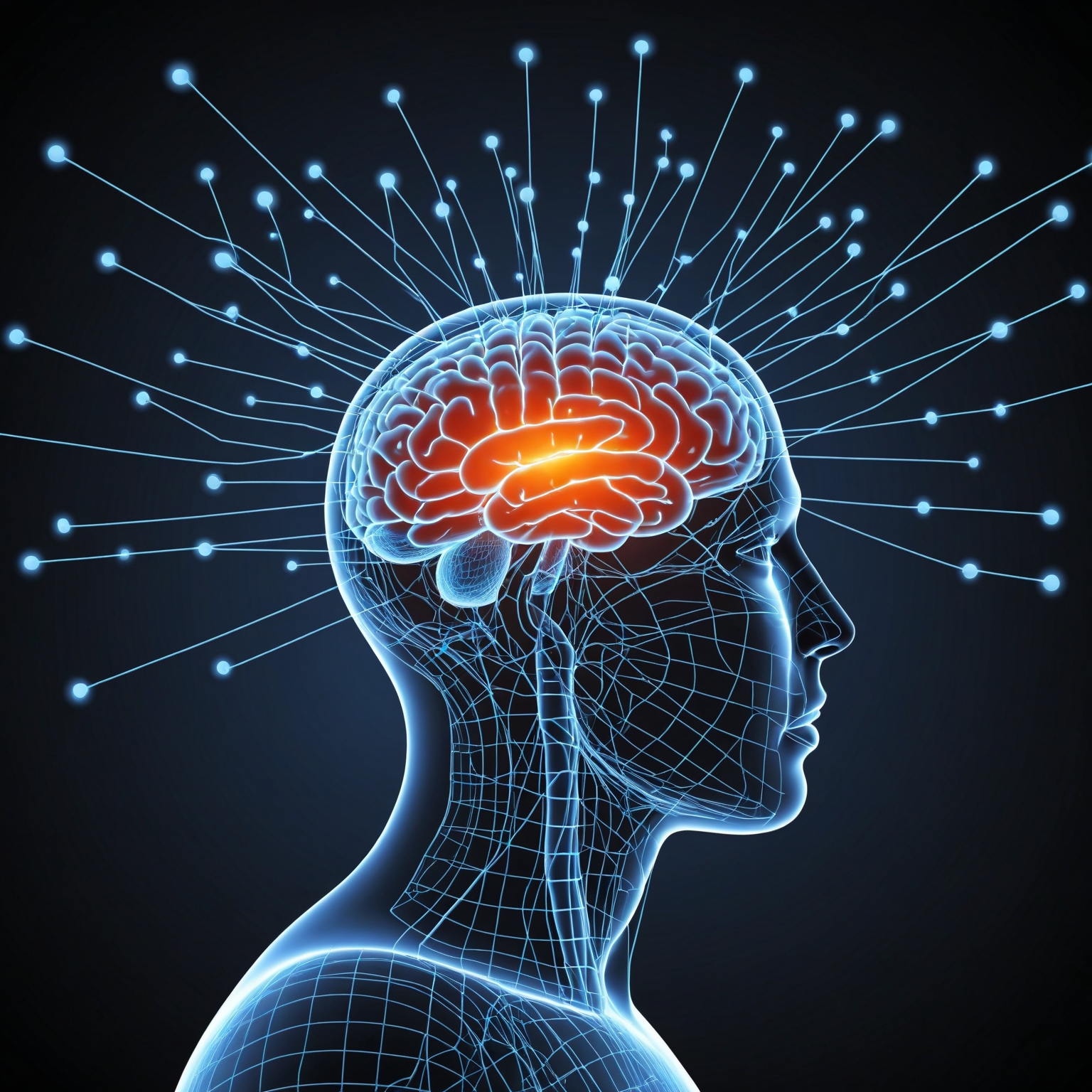In the vast landscape of human potential, the mind stands as a beacon of limitless possibilities. Yet, despite its remarkable capabilities, the human mind often grapples with limitations in grasping sensory information, processing it at unprecedented levels, and responding with the precision and efficiency of artificial intelligence and machine learning (AIML) systems. However, through conscious effort and strategic approaches, we can embark on a transformative journey to enhance our cognitive capacities and unlock new realms of understanding and mastery.
Enhancing Sensory Perception and Information Processing
Our sensory organs serve as gateways to the external world, providing a constant stream of information for our brains to process. To improve sensory perception, we can engage in practices such as mindfulness meditation, which heightens awareness of sensory experiences and cultivates a deeper connection with our surroundings. Additionally, techniques like sensory training and perceptual learning exercises can sharpen our senses and enhance our ability to discern subtle details in our environment.
Elevating Cognitive Functions to AIML Levels
To match the computational prowess of AIML systems, we must train our minds to excel in logical thinking, critical analysis, and creative problem-solving. Regular mental exercises, such as puzzles, brain teasers, and logic games, can stimulate neural pathways associated with these cognitive functions, leading to improved performance over time. Moreover, cultivating a growth mindset, characterized by a belief in one’s capacity for growth and learning, fosters resilience and adaptability in the face of cognitive challenges.
Overcoming Cognitive Biases and Illusions
Human cognition is susceptible to a myriad of biases, illusions, and cognitive distortions that distort our perception of reality and hinder rational decision-making. To mitigate these cognitive pitfalls, we must cultivate metacognitive awareness, which involves reflecting on our thought processes, identifying cognitive biases, and challenging distorted beliefs. By adopting a scientific mindset grounded in empirical evidence and rational inquiry, we can navigate through the fog of cognitive biases and make informed, evidence-based decisions.
Embracing Mental Clarity and Emotional Balance
The fog of mental clutter, laziness, and emotional turmoil can impede our cognitive processing speed and hinder our ability to engage actively with life. To cultivate mental clarity and emotional balance, we can adopt practices such as mindfulness meditation, physical exercise, and stress management techniques. By fostering a harmonious balance between mind and body, we can cultivate a state of mental alertness, focus, and emotional resilience conducive to optimal cognitive functioning.
Enhancing Neuroplasticity for Adaptive Learning: Neuroplasticity, the brain’s ability to reorganize and form new neural connections, underpins our capacity for learning and adaptation. Engaging in activities that challenge and stimulate the brain, such as learning a new language, musical instrument, or skill, promotes neuroplasticity and facilitates cognitive growth. Additionally, exposing the brain to diverse experiences and environments fosters synaptic flexibility, enabling us to adapt to changing circumstances and learn new information more effectively.
Harnessing Epigenetic Factors for Cognitive Enhancement: Epigenetic mechanisms, which regulate gene expression without altering the underlying DNA sequence, play a crucial role in shaping cognitive function and behavior. Environmental factors such as diet, exercise, stress, and social interaction can influence epigenetic modifications that impact brain function. By adopting lifestyle practices that promote epigenetic well-being, such as a healthy diet rich in omega-3 fatty acids and antioxidants, regular physical activity, and social engagement, we can optimize cognitive performance and resilience.
Promoting Brain Health through Neuroprotective Strategies: Protecting the brain from neurodegeneration and cognitive decline is essential for maintaining optimal cognitive function throughout life. Research suggests that factors such as regular exercise, a balanced diet, adequate sleep, and cognitive stimulation can promote brain health and mitigate the risk of age-related cognitive decline and neurodegenerative diseases such as Alzheimer’s and Parkinson’s. Additionally, incorporating neuroprotective nutrients and supplements, such as omega-3 fatty acids, antioxidants, and vitamin D, into our diet can support brain health and longevity.
Understanding Brain Development for Optimal Learning Environments: The human brain undergoes significant development and maturation from infancy through adolescence, shaping our cognitive abilities and learning potential. Understanding the principles of neurodevelopment can inform the design of optimal learning environments and educational strategies that cater to the unique needs and capacities of developing brains. Factors such as early childhood experiences, nutrition, exposure to enriching stimuli, and nurturing caregiving influence brain development and lay the foundation for lifelong cognitive health and resilience.
Exploring the Role of Neurotransmitters in Cognitive Function: Neurotransmitters are chemical messengers that play a critical role in regulating cognitive processes such as attention, memory, and mood. Imbalances or dysregulation in neurotransmitter systems, such as dopamine, serotonin, and acetylcholine, can impact cognitive function and mental well-being. Strategies to support neurotransmitter balance, such as stress management, regular exercise, and dietary interventions, can optimize cognitive performance and emotional stability.
Leveraging Technology for Cognitive Enhancement: Advances in technology, such as cognitive training programs, brain-computer interfaces, and neurofeedback systems, offer promising avenues for enhancing cognitive function and mental performance. Cognitive training exercises designed to target specific cognitive domains, such as working memory or attention, can improve cognitive skills and mitigate age-related cognitive decline. Similarly, brain-computer interfaces and neurofeedback techniques enable individuals to modulate their brain activity and optimize cognitive performance through real-time feedback and reinforcement.
Embracing Holistic Approaches to Cognitive Enhancement: A holistic approach to cognitive enhancement recognizes the interconnectedness of mind, body, and environment in shaping cognitive function and well-being. Integrating strategies from diverse disciplines such as nutrition, exercise physiology, psychology, neuroscience, and environmental science offers a comprehensive framework for optimizing cognitive health and performance. By adopting a holistic perspective and incorporating evidence-based practices into our lifestyle, we can unleash the full potential of our cognitive abilities and thrive in an increasingly complex and demanding world.
Exploring Genetic Influences on Cognitive Abilities: Genetic factors play a significant role in shaping individual differences in cognitive abilities, such as memory, intelligence, and processing speed. Research in behavioral genetics has identified specific genes and genetic variants associated with cognitive traits, highlighting the complex interplay between genetic predispositions and environmental influences. Understanding the genetic basis of cognition can inform personalized approaches to cognitive enhancement and intervention, empowering individuals to optimize their cognitive potential based on their unique genetic profile.
Investigating Environmental Enrichment for Cognitive Development: Environmental enrichment refers to the provision of stimulating and varied experiences that promote cognitive, social, and emotional development. Studies in developmental psychology have shown that exposure to enriched environments, characterized by opportunities for exploration, social interaction, and sensory stimulation, enhances cognitive function and neural plasticity in both humans and animals. Creating environments that support cognitive enrichment, such as interactive learning environments, nature-based experiences, and cultural enrichment programs, can foster cognitive growth and resilience across the lifespan.
Understanding Evolutionary Perspectives on Human Cognition: Evolutionary psychology offers insights into the adaptive significance of human cognitive abilities and behaviors, tracing their origins to ancestral environments and survival challenges. For example, cognitive processes such as attentional bias towards threat stimuli may have evolved as adaptive responses to predatory threats in ancestral environments. By understanding the evolutionary roots of cognition, we can gain a deeper appreciation for the functional significance of cognitive abilities and apply evolutionary principles to enhance cognitive function in contemporary contexts.
Exploring the Role of Neuroplasticity in Learning and Memory: Neuroplasticity, the brain’s ability to reorganize and adapt in response to experience, is a fundamental mechanism underlying learning and memory. Research in neuroscience has revealed that synaptic plasticity, the ability of synapses to strengthen or weaken over time, underlies the formation of memories and the acquisition of new skills. Techniques such as spaced repetition, which leverage the principles of neuroplasticity to optimize learning and memory retention, can enhance cognitive performance and facilitate long-term knowledge acquisition.
Examining the Impact of Socioeconomic Factors on Cognitive Development: Socioeconomic status (SES) has a profound influence on cognitive development, with children from higher SES backgrounds often exhibiting superior cognitive abilities compared to their lower SES counterparts. Factors such as access to educational resources, nutrition, healthcare, and parental involvement shape cognitive development and academic achievement. Interventions aimed at reducing socioeconomic disparities, such as early childhood education programs and economic support initiatives, can mitigate the adverse effects of socioeconomic disadvantage on cognitive development and promote equitable access to cognitive enrichment opportunities.
Investigating Cross-Cultural Variations in Cognitive Functioning: Cross-cultural research on cognitive functioning reveals intriguing variations in cognitive processes and problem-solving strategies across different cultural contexts. For example, studies have shown that individuals from collectivist cultures may prioritize relational reasoning and holistic thinking, whereas those from individualistic cultures may emphasize analytical reasoning and object-focused attention. By examining cross-cultural differences in cognition, researchers gain insights into the cultural shaping of cognitive processes and the universality versus cultural specificity of cognitive abilities. Understanding cross-cultural variations in cognition can inform culturally sensitive approaches to cognitive assessment, education, and intervention, promoting cognitive diversity and inclusivity.
Empowering the Human Mind for Unprecedented Growth
In essence, the journey to unleashing the full potential of the human mind is a continuous process of self-discovery, growth, and transformation. By embracing practices that enhance sensory perception, elevate cognitive functions, overcome cognitive biases, and promote mental clarity and emotional balance, we can transcend the limitations of our current cognitive capacities and ascend to unprecedented levels of understanding, insight, and mastery. Together, let us embark on this empowering journey to unlock the infinite potential of the human mind and shape a future defined by wisdom, innovation, and enlightenment.







